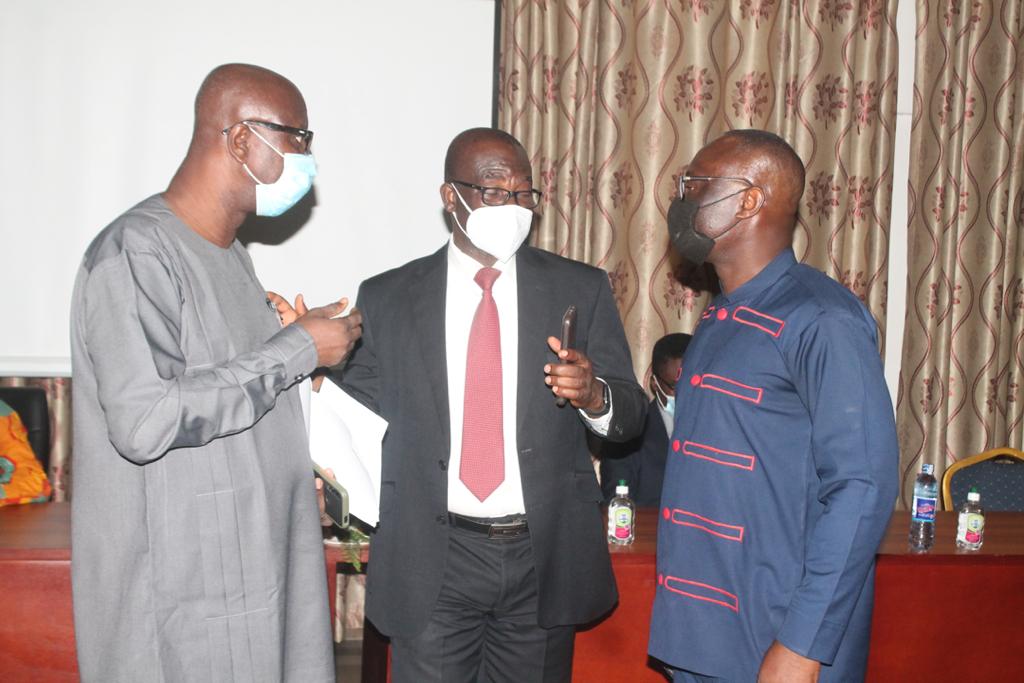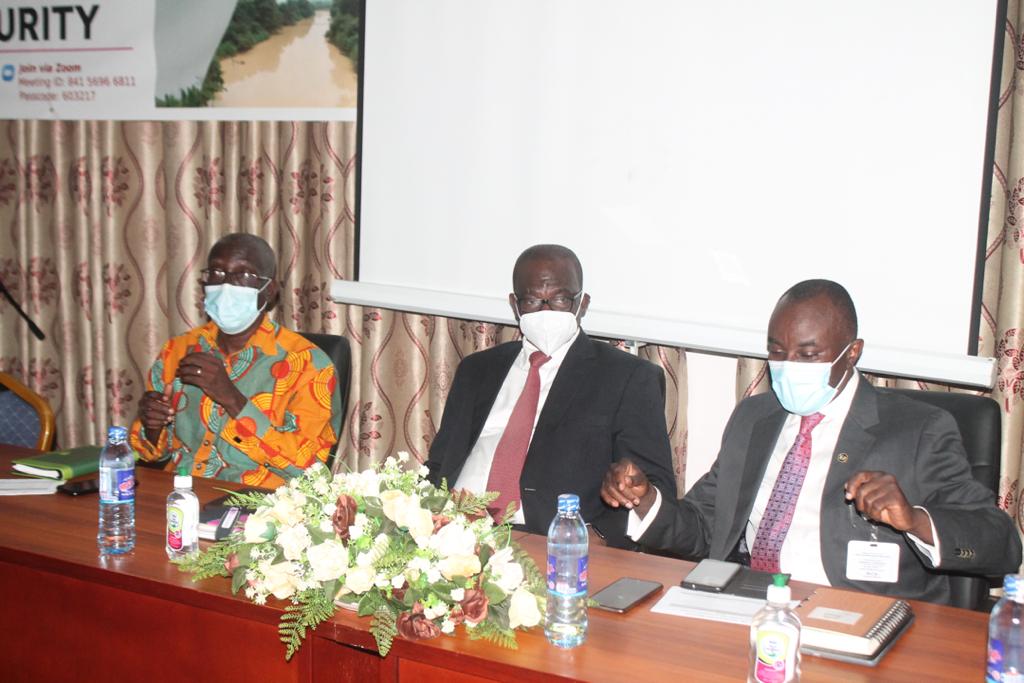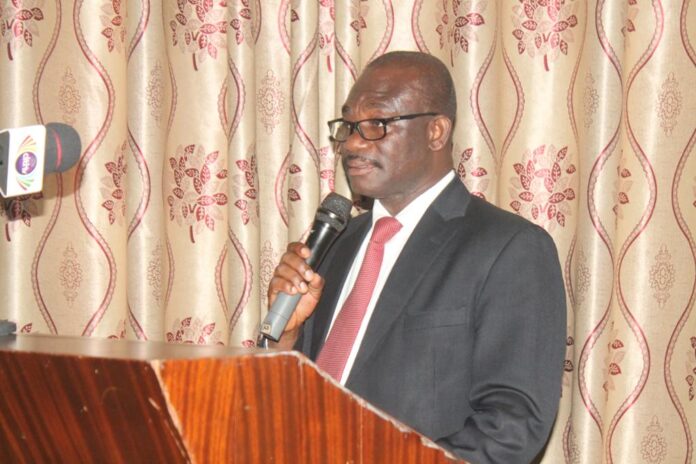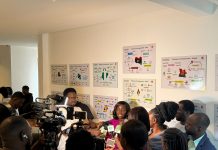A one-day workshop aimed at looking at the impact of illegal mining (popularly known as galamsey) and water security has ended with a call on Ghanaians to join in finding a lasting solution to the galamsey menace and help safeguard the country’s water bodies.
A Senior Research Scientist, Head of Ground Water Division of the Water Research Institute (WRI), Dr Anthony A. Duah, who made the call, said stopping galamsey at all cost, will help improve the quality of water bodies in the country, which serve as sources of drinking water and other domestic uses for the citizenry.
“Results from studies carried out by the CSIR Water Research Institute in recent times on the Southwestern Rivers system which are being used by the citizens in the communities within the area for domestic purposes recorded very high levels in colour, turbidity and total suspended solids.

…The levels recorded were far above World Health Organisation’s (WHO’s) recommended levels for fresh water. Furthermore, the heavy metals used in Galamsey operations such as Mercury for gold extraction adversely affects soil and water quality,” Dr Duah stated.
This, he added, contributed to the many health issues which continue to be recorded in the hospitals.
“Lead poisoning in particular causes anemia, weakness, constipation, colic, palsy and often paralysis of the wrists and ankles. Lead can reduce intelligence in children, delay motor development, impair memory and cause hearing problems.
…For example, lead found in water can increase blood pressure in adults and it can also cross the placenta which results in miscarriages, still births and neurological damage,” Dr Duah said.
The seminar, which was organised by the Water Research Institute (WRI) in Accra on Tuesday, June 29, 2021, brought together environmentalists, health experts, media practitioners, security agencies, and representatives from the Ghana Water Company Limited and senior high school students.

It was on the theme “Galamsey and Water Security.”
According to Dr Duah, it was sad that many of the country’s water bodies have become polluted due to galamsey.
In this regard, he stressed the need to intensify education on the fact that “water is life.”
He said the use of chemicals such as mercury in galamsey operations in water bodies was affecting “our foods and fishes.”
“High levels of mercury have been found in soil and river sediment samples in these areas. Several lands have been degraded because of the illegal mining activities in the area. This also deprives the people whose livelihood depend on the land and its needed resources for their survival,” he noted.
He said among the problems caused by galamsey included soil degradation, destruction of food and cash crops.
For his part, a Senior Research Scientist, Head of Surface Water Division of the WRI, Dr Emmanuel Obuobie, said water bodies play major roles in “our daily lives.”
These, he said, included domestic and industrial activities, cautioning that scarcity of water can have dire consequences on a nation.
He indicated that, the number of people living in water scarce areas in Ghana is presently about 28% and projected to reach about 46% by 2030 and that, even without the impact of galamsey, places like the Pra Basin can be described as water scarce areas. He indicated further, that based on recent turbidity measurements, it is clear that galamsey has rendered the Pra and Ankobra Rivers not fit for any use without treatment, exacerbating the already dire water scarcity conditions of the people who depend on these rivers.
He also added his voice on the call for Ghanaians to help protect the country’s water bodies.
In this welcome address, the Director of WRI, Professor Mike Y. Osei Atweneboana, said galamsey must stop, underscoring that “we must kill it all.
The Chairman of the occasion, Director General for Council for Scientific and Industrial Research (CSIR), Professor Victor Agyemang, was saddened that measures put in place to protect water bodies in the country were being flouted with impunity.











































